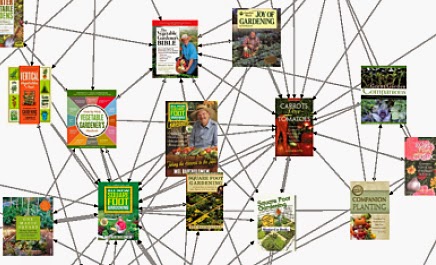
Do you want to learn more about writing, including receiving marketing tips and tricks, deals on valuable workshops and retreats, and time management hacks? Join the VIP Writer’s Club!
Become a VIP Reader!Interested in free books, exclusive bonus content, and VIP early access to Jess’ upcoming projects? Then sign up here to become a VIP Reader.
October 23, 2014
TBTB (Throwback Thursday Blog)--My First Bouchercon
This blog post was originally written on September 26, 2006, the year my first book came out and in the midst of attending my first Bouchercon. I am pleased to say I am older but no more mature than when I originally wrote it. Enjoy!
And the Beat Goes on...
9/26/2006
It's true. No one is rude at Bouchercon. The one Rudinator from Love Is Murder has been surprisingly sober every time I see him, so who's left? Oh wait, there was that one guy, the smirking-laugh-at-you-corrector-of-everything-you-say, but I needed a new villain to kill off in the next mystery, and he was a great prototype. So thank you, Mr. New Rudinator.
Otherwise, all good. Sandra Ruttan, despite her offer, would be hard pressed to pull off rude with any believability (although I bet she does pissed off pretty well if you give her a reason), Tim Maleeny is not only an interesting storyteller but a charming person, Bill Cameron is a little bit meaner than Santa Claus and not quite as nice as Mister Rogers, and I'm pretty sure Julia Buckley is nice, too, but she was too busy being clever and funny for me to be sure. By the way, check out her blog. It's fabulous.
Today, I got Kent Krueger and Laura Lippmann to sign their new mysteries for me, so yay! I also accidentally sat next to a crazy man who writes short stories but wouldn't tell me what they were about because they're private and only his publisher can see them (and I couldn't help noticing his age spots were the same color as his eyes). Ah, the tales from Bouchercon. Tomorrow, my goal is to meet reviewers, but the deal is that somehow you can't tell them apart from the rest of us regular folk. I hear they float when you drop them in water, though.
What I've learned so far at Bouchercon:
-
How to take a shoe imprint out of snow (hot sulfur, interestingly enough).
-
Paint chips are used in identifying criminals, but there needs to be at least eight layers of paint in the chip for it to be admissible. (Got both those tips from Jerry Geurts, Director of the Wisconsin State Crime Lab. You know, the real CSI guy for Wisconson.)
-
I never want to read a medieval mystery. It's just me, and I think it has more to do with the disappointment at finding out there are not automatically wenches and swords in them as much as anything.
-
Midnight Ink has a great line-up of authors, and a fantastic team all around (everyone I meet loves the covers!).
-
I automatically take people with British accents more seriously because they're smarter.
-
According to mystery writer Barb D'Amato, death is not funny, but people are funny. I would like to add to that that sex is funny, but dead people having sex isn't.
-
All mystery writers are nice, except for the three assholes, and everyone knows who they are. I stole that from Tim Maleeny, who heard it in a presentation yesterday. It's true and brings this post full circle.
More to come tomorrow!
October 17, 2014
Kindle Scout
Amazon launched Kindle Scout last Tuesday, using a crowdsourcing model to get people excited about a product. (HarperCollins is already doing something similar with Authonomy). With Scout, writers upload their 50,000+ word, never-been-published (including self-published) mystery, sci fi/fantasy, or romance manuscript to the Kindle Scout site, plus a book cover for it.
If you submit, there is no changing your mind. Amazon owns exclusive rights for 45 days, and then digital rights for five years if they offer you a contract.Those books worthy of contracts are discovered through some algorithm between reader votes--readers see your bio, cover, and an excerpt and can vote on whether or not they'd like it published; if a book they vote for is chosen, they receive a free e-copy of it--and the opinions of the Kindle Scout team.
The contract terms are non-negotiable. You also receive no editing or help with your cover; whatever you submit is what Amazon publishes, if your book is chosen (although you have 30 courtesy days after it's chosen to edit on your own if you like).

"If you do not earn at least $25,000 during any 5-year term, you'll have six months after the end of that 5-year period in which you can choose to stop publishing with us and request your rights back."
Plus, having the Amazon Algorithm marketing on your behalf is a magical thing. I have to believe they're going to pull GoodReads into this somehow to give it even more legs, and they'd be fools to not tie this all in with NaNoWriMo, which begins in two short weeks.
I think I am repelled at the idea of Scout being seen as a publisher (it looks like Amazon is trying to institutionalize the EL James/Amanda Hocking model of success) because they are really just marketing your book (you have to design your own cover, provide your own editing, and possibly provide your own formatting, in addition to publicizing your own Scout campaign). That gives some faint Chitty Chitty Bang Bang child-stealer-feel to this. (How's that for bringing a knife to a pillow fight?) But if I look at Scout not as a publisher but as a marketing tool for self-published books? In that case, it is promising.
Specifically, if I had a professionally-edited but unpublished mystery manuscript sitting on my computer that I was going to self-publish anyway, I'd have a professional design me a cover and submit the package to Kindle Scout. I really would, particularly if it was part of a series and could be used as a loss leader to pick up the pace on the rest of their series. Their contract is not heinous, and I love an adventure. Plus, I have a feeling that the early books marketed through this model are going to do crazy well.
Your thoughts?








